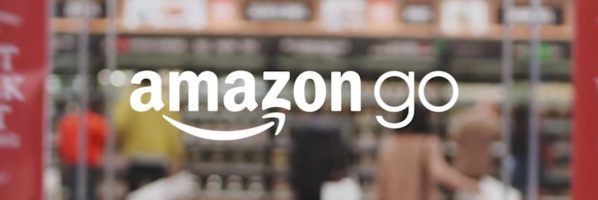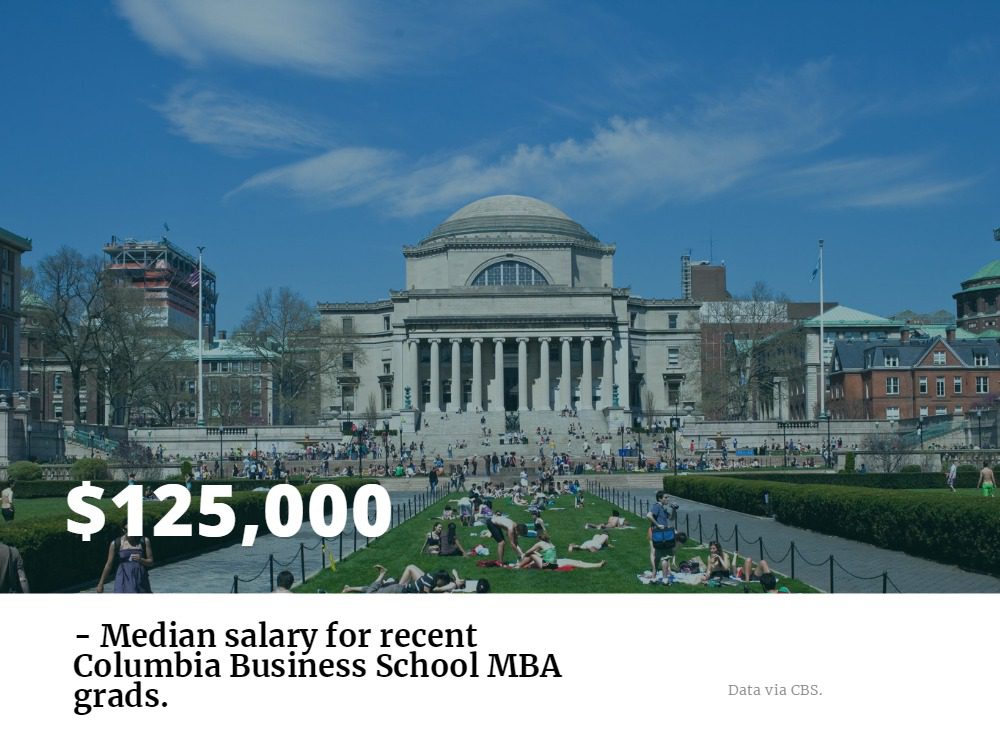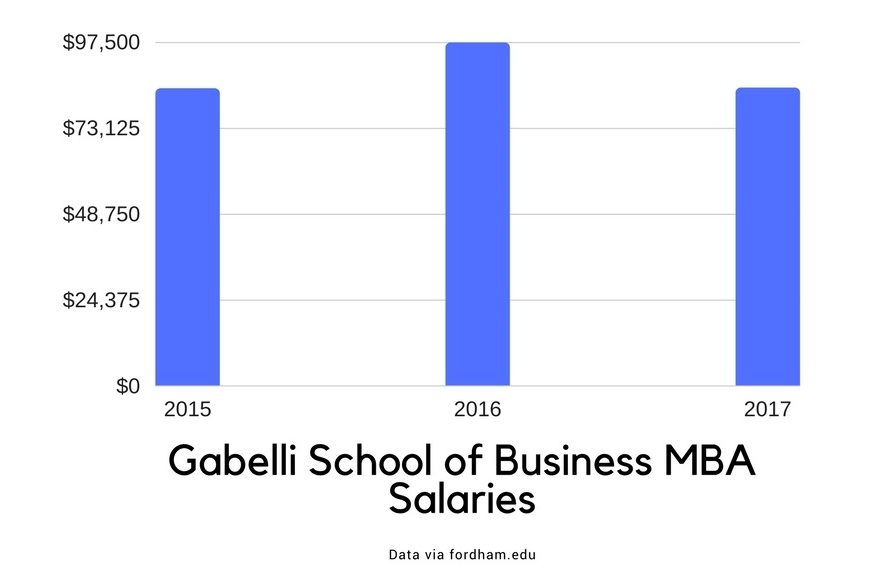So, What is a Strategy MBA and Where Can You Find One?

For those who don’t have a natural knack for strategic thinking, the ability to analyze effectively and make logical decisions can often seem like the kind of skill that just can’t be taught. Luckily, most business schools disagree.
Not only is strategic thinking a skill that can be studied and improved, but an advanced education in this field can lead to a wide array of careers, often incredibly lucrative ones. After all, the ability to make strategic decisions can lead to success in all aspects of business and across numerous industries- that might be why those who earn MBAs in Strategic Management are entrepreneurs, COOs, Department Supervisors, Business Analysts, and are found at any number of high-level management positions.
Whether you are born with the skill or not, pursuing a Strategy MBA is the perfect way to set yourself up for a versatile career in strategic management.
What is a Strategic Manager?
In an ever-changing and often tumultuous business world, an organization’s strategic planner can be a crucial part of their growth and continued success. A career in strategic management or planning will involve keeping an organization on course through the collection, analysis, and organization of information pertinent to the company’s profitability. This may include tracking industry trends, keeping an eye on external business competition or threats, identifying opportunities and creating action plans for a company based on strategic problem solving.
Strategy jobs typically deal in the “big picture” of the company, and are a key part of both shaping and supporting a company’s overall vision and values. The role is a desirable one within a company, as it provides direct access to senior managers and frequently leads to higher level leadership positions.
Strategy jobs require a candidate to use skills from a variety of disciplines, such as finance and marketing. Since these positions are often highly competitive and require candidates to demonstrate a high level of business acumen, earning an advanced degree in strategy is one of the best ways to prove you have the unique combination of skills and drive required for this often demanding—but incredibly rewarding—career.
What Is a Strategy MBA?
Given the breadth of skills required to be a successful Strategic Manager for a company, it’s easy to see why one would want an advanced degree in the field. An MBA specialization in Strategic Management is designed to provide students with a deep grounding within the logic of competitive advantage, focusing on both a broad understanding of business competition as well as a more nuanced training in analysis and decision making.
Offered at some of the top business schools throughout the globe, a Strategy MBA will help set future business leaders on course for careers in strategy consulting, general management, entrepreneurship, and a number of other careers that require the careful skills of analysis and problem solving gained with this degree.
Why Should I Get a Strategy MBA?
With the unique skill set required for a higher-level role in Strategic Management, earning an MBA with a specialization or major in Strategy can be crucial to proving your skill to potential employers. Regardless of your ultimate career goal, the “big picture” type of training offered by a Strategy MBA can be seen as shorthand for a person with the drive and acumen necessary to make crucial business decisions. And graduates with Strategy MBAs don’t always take jobs as Strategic Planners—they are CEOs, entrepreneurs, and other high-level leaders within their organizations.
Those who do earn Strategy MBAs are also often the highest earners among their MBA-holding peers. According to Payscale, Senior Strategy Manager positions can earn salaries of up to $119,000 per year, a large portion of which comes from bonuses, and occasionally, profit sharing. Graduates of Strategy MBA programs are employed at some of the world’s top companies, such as Deloitte, Amazon, and the Intel Corporation.

Where Can You Get a Strategy MBA?
With an increasing demand throughout the years for qualified and experienced strategy planners, a wide variety of business schools—including some of the top ranked MBA programs in the country—have begun to offer MBA specializations in the field of strategy management/planning.
Below are just a few of the MBA programs throughout the United States offering an MBA in Strategy or Strategic Management.
Temple University Fox School of Business
The Fox School of Business at Temple allows MBA students to focus their degree in Strategic Management, or earn a dual degree that combines an MBA with a Master in Innovation Management & Entrepreneurship (IME). The Department of Strategic Management (SGM) at Fox allows students to approach business strategy from four different angles- entrepreneurship, management, consulting, and international business. All for disciplines help prepare students to be leaders within the strategic management field through hands-on instruction, internship opportunities, networking events, travel abroad experiences, and more.
New York University Stern School of Business
The Stern School of Business at NYU allows MBA students to specialize their degree in Strategy, which will help provide a strong business foundation for the business leaders of tomorrow. The degree will help prepare students for a wide variety of fields, including careers in strategic planning, risk management, and management consulting. Courses in strategic management at Stern include: Competitive strategy in the marketplace, corporate governance, strategic design, strategic talent management, and more.
University of Pennsylvania Wharton School of Business
The world-renowned Wharton School at UPenn also offers students the opportunity to earn an MBA in Strategic Management, a major which aims to provide a “deep grounding in the basic logic of competitive advantage premised on a careful analytical treatment of the distinct qualities of positions of individual firms and an understanding of broader competitive dynamics.” Some of the courses offered as part of this major at Wharton include: Deals: the Economic Structure of Transacting and Contracting, Strategic Implementation, Multinational Business Strategy, Competitive Strategy and Industrial Structure, and more
Boston News: MIT Tackles Universal Basic Income, Negative Reviews, and More

Let’s visit some of the biggest news coming out of Boston business schools this week.
12-Year Study Looks at Effects of Universal Basic Income – MIT Sloan Newsroom
MIT Sloan School of Management associate professor Tavneet Suri, alongside nonprofit company GiveDirectly, will conduct a lengthy, 12-year study into the effects of the constant hot-button issue of universal basic income. UBI is a basic concept that an acting government will assist its citizens by distributing a recurring stipend, supplementing the loss of jobs to things like automation.
“Suri is conducting the research along with MIT professor Abhijit Banerjee, Princeton professor Alan Krueger, University of California San Diego professor Paul Niehaus, and GiveDirectly president Michael Faye. Overall, GiveDirectly expects to transfer $25 million to more than 21,000 people (not including the control group), 5,000 of whom will receive cash transfers for 12 years. The money comes with no strings attached.”
Read more about the extensive MIT UBI study here.
The Costs and Benefits to Responding to Negative Online Reviews – BU.edu
When BU Questrom marketing professor Georgios Zervas and USC’s Davide Proserpio looked into thousands of TripAdvisor reviews, they found a fairly surprising turn: hotel managers that actively engaged with reviewers, positive or negative, may have actually helped their overall ratings. Zervas notes that it actually diminished the number of negative reviews because users were more wary when they saw hotel staff members participating in a conversation.
However, the two found that the reversal cause of this interaction was that negative reviews who did leave reviews, after engaging with the hotel staff, tended to leave longer reviews—which often made the negative details much more elaborated and personal. Zervas notes this is still probably good overall, saying, “The remaining negative reviews are detailed and contain constructive feedback that [hotel management] can act upon.”

BU professor Georgios Zervas and USC’s Davide Proserpio found uniquely beneficial ways companies can utilize review sites like TripAdvisor.
Read more about BU Questrom’s study on TripAdvisor here.
What Could Amazon’s Approach to Health Care Look Like? – HBR
The Amazon, Berkshire Hathaway, and JP Morgan Chase venture to disrupt the healthcare industry led to a minor panic for other healthcare shareholders, but its potential impact is still fairly uncertain. HBR writer Robert S. Huckman and admitted Amazon shareholder recently explored the potential positive impacts, including simplifying a very complex U.S. healthcare prescription service industry, “simplifying data capture,” and the repeated effort from Amazon to improve its services to regular customers.
On the latter reason, Huckman explains, “Amazon has an internal challenge — managing the health and health spending of its employees — that is shared by many other companies. Yet Amazon likely does not have a full “solution” in mind just yet. Rather, it has ideas and hypotheses to test. By creating a space in which those ideas can be tested, Amazon may be able to play a key role in allocating resources to solutions that show themselves, over time, to be promising.”
You can read more about Huckman’s outlook for Amazon healthcare here.
Stay up to date with all news from the Boston metro, as well as our MetroMBA Boston twitter feed, today.
Amazon, Philly Win Super Bowl According to Northwestern Kellogg

Philadelphia football fans took to the streets, toppling cars, scaling street lamps, and setting at least one fire to celebrate their beloved Eagles’ first-ever Super Bowl win, 41 to 33 against the New England Patriots. But according to MBA students at Northwestern’s Kellogg School of Management, e-commerce giant Amazon was the victor in terms of best ads of the night.
On Sunday, as the game got underway in minus-2-degree Fahrenheit Minneapolis, approximately 50 Kellogg students teamed up with marketing professors Tim Calkins and Derek Rucker to determine the night’s winners and losers in the battle of the brands. Advertisers spend more than $2 billion each year and roll out highly anticipated Super Bowl commercial spots in an effort to imprint their brands in the minds of millions of spectators—some wowing and others bombing in the process.

Kellogg students watch commercials during the Super Bowl at the Allen Center Atrium in Evanston, Illinois, February 4, 2018. Photo by Jim Young for Kellogg
Armchair spectators around the world pick their own winners and losers among the ads, but for the 14th year running, Kellogg students applied a unique framework for evaluating an ad’s brand-building potential as part of last night’s 2018 Kellogg School Super Bowl Ad Review. Using the ADPLAN framework to evaluate each ad according to six critical criteria—Attention, Distinction, Positioning, Linkage, Amplifications and Net Equity—the Kellogg students determined the winner of the night to be Amazon with its “Alexa Loses Her Voice” commercial spot. Also scoring highly were Mountain Dew, Doritos, Tide, Avocados from Mexico, and Wendy’s.
Joining the Pats in defeat, according to the Kellogg review, were Squarespace and T-Mobile, which each received “F” grades for least effective advertising during the game.
“Amazon used a cast of celebrities that focused us on the brand, reinforced the equity in Alexa, and ultimately was fun to discuss and share with those around you,” Professor Rucker said in a statement. The Amazon ad included appearances by Cardi B, Rebel Wilson, and Amazon CEO Jeff Bezos. “However, Squarespace and T-Mobile both missed the mark with questionable positioning and unclear calls to action,” continued Rucker.

Kellogg students analyzing Super Bowl ads in real time. Photo by Jim Young for Kellogg
Professor Calkins called attention to two trends that emerged across the big game’s ads—a competitive angle and philanthropy. “As competitive as the game was, the category wars were equally competitive,” Calkins said in a statement. “For example, there was hard hitting competition in the wireless wars with some brands calling one another out,” he noted. In addition to poorly performing T-Mobile, wireless advertisers included Sprint and Verizon, which the Kellogg student review team each awarded “B” grades.
“Many brands tried to appeal to viewers through philanthropic causes, including Toyota, Ram, and Hyundai,” Calkins added. Ram, for its part, sought to sell its trucks using images of people helping others with a sermon given by Dr. Martin Luther King, Jr. as the voice over. The ad concluded with the phrase “Built to Serve” flashed on the screen alongside a Ram logo. Unfortunately for Ram, the social media backlash was fast and furious.
“A Martin Luther King Jr speech to sell @Dodge Ram trucks? Totally offensive #mlk,” wrote one user on Twitter.
Several other tweets expressed similar sentiments:
There was audible painful groaning at the Super Bowl party I’m at as everyone realized Dodge Ram was trying to profit off of an MLK speech
— Hunter Walker (@hunterw) February 5, 2018
Not sure MLK’s dream was to drive a Dodge Ram.
— ItsTheReal (@itsthereal) February 5, 2018
“I have been to the mountaintop. And I got there in a Ram truck.” – MLK
— SportsPickle (@sportspickle) February 5, 2018
The Kellogg student team gave the Ram commercial a “C” grade overall, but Calkins had more to say in an interview with the New York Times. “It’s the wrong mistake to make given everything that’s going on in the U.S. right now,” he told the Times. “There’s so much emotion right now around race in this country that this was a high-risk move, and clearly it’s not going over very well,” he continued.
“I think it was well intentioned, but they’re going to have a lot of explaining to do,” Calkins continued. “They did not release this ahead of time, so they went for the surprise. They got that, but at the same time they now have a big problem with feedback and people being upset.”
Though many on Twitter directed their ire toward Dodge—the Detroit-based car manufacturer founded by two brothers of that name in the early 1900s—the Ram Truck brand was officially separated from the Dodge car brand in 2009 as part of an acquisition by Italian automaker Fiat S.p.A. Its successor, Fiat Chrysler Automobiles, is the current owner of the Ram Tuck brand.
Perhaps some of the confusion around brand will be a boon to Ram’s owner as it attempts to recover from its Super Bowl fumble. As for whether ad champion Amazon will look favorably on football champion Philadelphia as a spot for its future HQ2—another topic of speculation on social media last night—only time will tell. What we do know is that the students at Kellogg will carry lessons learned from advertising’s biggest night along with them into their future careers in marketing.
For the full 2018 Kellogg School Super Bowl Ad Review results, click here.
To learn more about the Kellogg School Super Bowl Advertising Review, click here.
This article was republished with permissions from our sister site, Clear Admit.
Northeastern Prof Talks About Amazon Automation and Future Shopping

After the emergence of Amazon Go, a cashier-less convenience store the e-commerce juggernaut recently opened in downtown Seattle, Northeastern University’s D’Amore-McKim School of Business explored the potential impact of automation on the future of commerce.
The simple concept behind Amazon Go is a streamlined mini-mart experience in which customers “scan their smartphones with an app [and] grab what they want.” DMSB Associate Professor of Marketing Strategy and Managerial Decision-Making Bruce Clark discussed the implications of what New York Magazine dubbed the “automated 7-Eleven killer.”
“Unless you have an Amazon Go next door to your store, I’m not sure this is a big deal. It’s not clear to me the customer experience of an Amazon Go store is sufficient to make me walk past the local 7-Eleven. Geography is destiny in this sense: where you have more convenient stores, you will do well. A longer-term threat might be if Whole Foods went cashier-free and you had a Whole Foods next to your convenience store.”
Clark is quick to point out that AI more commonly automates pieces of jobs rather than entire gigs and cites the advent of the ATM in the late 1960s and ’70s as a key example.
“Despite widespread adoption of ATMs, employment of bank tellers increased over much of the past three decades. The driving factor was that while a given bank branch might require fewer tellers, that reduction in labor costs meant that banks could open more branches, offsetting the loss at any given branch. Tellers’ jobs in turn became more like that of a customer service representative rather than a paper- and currency-pusher.”
Clark remains cautiously optimistic about the future of retail, according to reports.
“The common thinking is that over time, human jobs will evolve toward processes at which humans remain better value, notably in emotional intelligence and physical dexterity. Retail employees will find their jobs increasingly specified in those terms. You’re either interacting with customers or efficiently managing the stocking and layout of a store. Employees who excel in these areas should be okay.”
But perhaps less so about the future of employment across the board. “All that said, I’m not sure any of us should be assuming we will have stable, well-paid employment in the future.”
2018 Trends: New York City’s MBA Future

It doesn’t take a stable genius™ to figure out that New York City is the world’s most highly sought-after 22.82 mi² strip of land to pursue an MBA.
As is the case with most prime real estate, the stakes are high and the competition fierce. For many prospective business schoolers, the decision to step into the gauntlet is one made with a healthy sort of trepidation.
Hefty price tags and cutthroat admissions present real barriers for prospective students and deter more than a few. Still, many equate the New York MBA experience to a dream scenario—or a Gordon Gecko-style fantasy, replete with the promise of a staggering salary, an attractive range of employment opportunities, and prime placement in a city of constant progress.
How does the dream stack up to reality? Schools weigh in on 2017 trends for graduates, many of whom report satisfaction with employment offers. Let’s take a look at how MBA graduates are getting the most of their newly minted degrees!
2018 New York City MBA Trends
Columbia Business School
According to the school’s most recent MBA employment report, less than 2 percent of Columbia Business School graduates reported salary as the primary reason for accepting an offer. While the honestly of that polling answer pool is debatable, Columbia School of Business is the king when it comes to starting salaries on our list, with median salary of $125,000. Of the graduating class, 93.2 percent of students accepted employment offers within three months. Approximately 28 of 1,019 total students stepped aside to create their own companies. Per the standard with many of the NY-area schools, the largest portion of graduates selected financial services (34.4 percent) as their field of choice, followed closely by consulting (33.1 percent) and media and technology (15.6 percent). Companies such as McKinsey & Company, Amazon, Goldman, Sachs & Co., and Morgan Stanley welcomed a majority of Columbia’s finest.

The boastful salary expectations, unsurprisingly, are tempered a bit by the costs of the CBS MBA program. The current estimated budget for Columbia MBAs comes in at $107,749 in the first year, of which includes over $21,000 for room and board. Tuition in isolation, however, costs $71,544 for the first year. Looking at a degree at any New York City school, never mind an Ivy League institution, means cost of living has to be taken in heavy consideration, which can vary greatly from borough to borough.
Fordham University’s Gabelli School of Business
About 88 percent of students in the Fordham Gabelli School of Business graduating class accepted employment offers within six months after graduation. Starting salary rates were below Columbia’s, at an average of $84,593, with an average signing bonus of $15,536 and additional compensation of $14,510. That average salary figure is an approximate 13 percent drop from the previous year’s reported averages.
Out of the many fields MBA students typically chose this year, Fordham students favored less predictable fields: just under 50 percent went into financial services, while 11 percent earning employment in consumer products, technology, and media, respectively. Unlike MBA graduates from many other NYC schools, however, only 5 percent of Gabelli students went into consulting, signifying a deeper trend of tech continuing its encroachment on MBA talent.

Compared to many other schools on this list, Gabelli’s distinct advantage is cost. The first year of the MBA program currently costs $49,645: more than 30 percent less than the cost of the Columbia full-time MBA tuition.
NYU Stern School of Business
This may shock you, but, NYU Stern MBA students are doing pretty well, with an average starting salary of $121,146 in placement of some of the most prestigious institutions in finance (32.4 percent), consulting (26 percent), technology (16.8 percent), real estate (3.5 percent), and retail (3.2 percent). Around 83 percent of those students landed jobs in the Northeast U.S., while nearly 10 percent of graduates found positions in Asia, Europe, and South America. Nearly half of all job offers were the result of an internship facilitated by NYU.
Like the trend at Gabelli, NYU grads jumping into tech has been steadily climbing over the past few years, rising from just 6 percent of employed grads from the Class of 2014, to 17 percent for the most recent class. The incremental increase coincides with the school’s recently added Tech MBA.
Stevens Institute of Technology School of Business
In a metro brimming with very successful business schools, the Stevens Institute of Technology School of Business separates itself with an incredible employment placement rate of 94.9 percent; the best placement among all business schools in the country, according to U.S. News & World Report.
The Stevens MBA faculty claim to provide “exceptional career services much earlier than other universities.” 90 percent were employed in the industry of their choice. Starting salaries fell between $88,805—$125,000. Companies such as Goldman Sachs, Protiviti, PwC ,and Prudential offered employment opportunities for these students.
Cornell University’s SC Johnson Graduate School of Management
About 93 percent of students from Cornell‘s Ithaca and NYC campuses received employment offers within six months of graduation. The average base salary was $125,578, which was an increase from previous years “driven by salary growth in consulting and finance.” Chosen fields for students were finance (38 percent), consulting (26 percent), and general management (21 percent). Out of the 122 companies that sought 2017 graduate students, the top recruiters were Citi Group, Amazon, Deloitte Consulting LLP, Ernst & Young, and McKinsey & Company.
Even Cornell MBA students in an internship were earning some of the best salaries in the country, pulling in a reported $8,764 per month. Those figures out over a 12-month rate are more than triple the average intern salary, according to Glassdoor data.
Here Are the Front Runners For Amazon’s New HQ2 Campus

Last week, 20 cities in the United States and Canada were informed by Amazon that their bid to host the tech giant’s second headquarters, HQ2, was still being considered. Continue reading…
